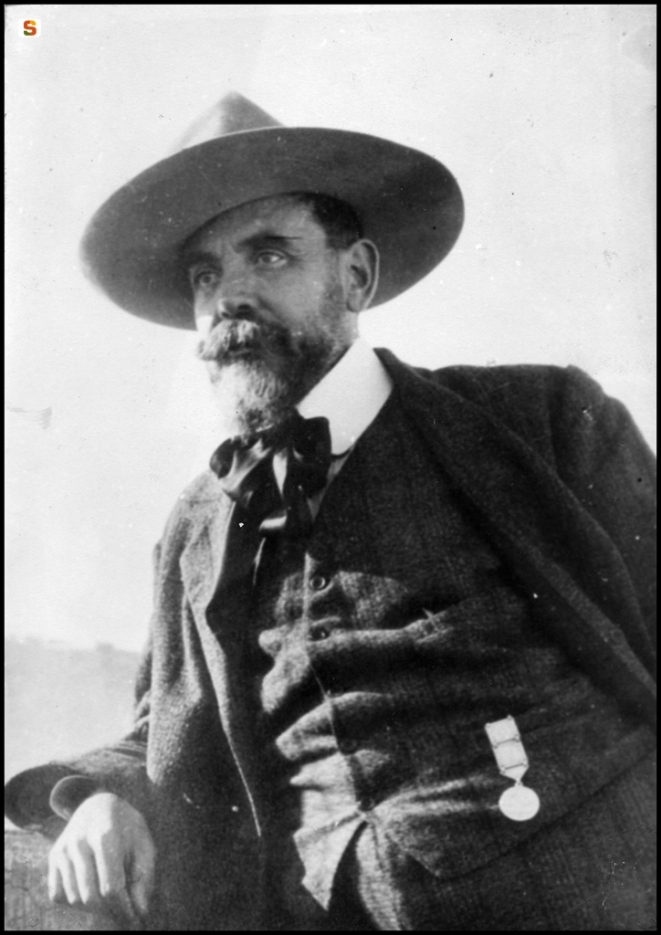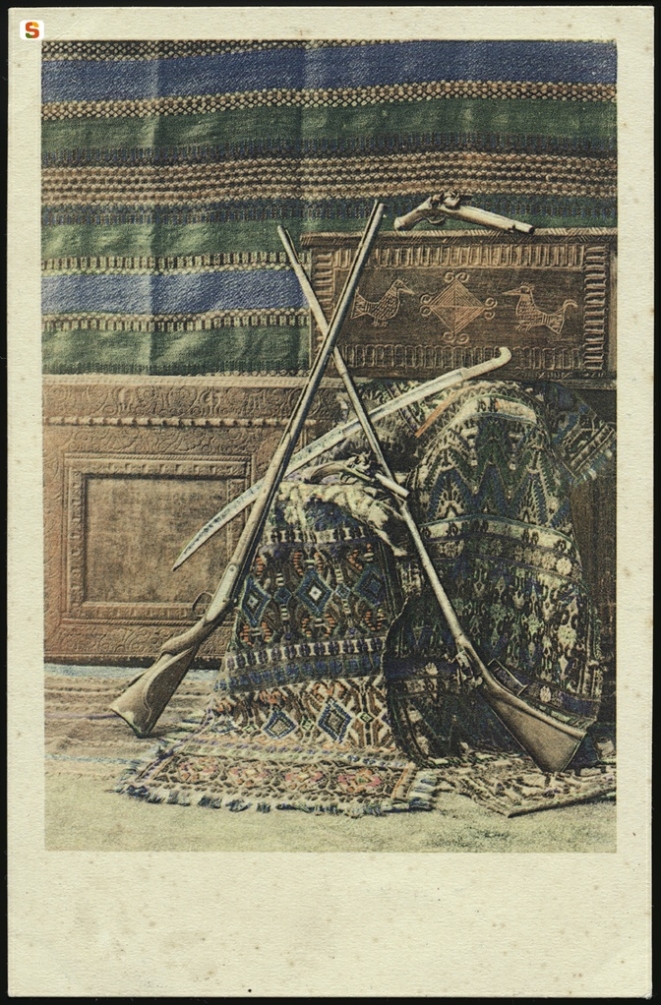The poet meets the bandit
The interview by Sebastiano Satta to Francesco Derosas
It was the February of 1894 when Sebastiano Satta and his journalism mate, Gastone Chiesi, in the cave-shelter of Setti-Funtani, in the territory of Sassari, interviewed the fugitives Francesco Derosas, nicknamed Cicciu, Luigi Delogu and Pietro Angius, some bandits of Usini (SS).
Letting the bandit speak, for Satta meant also idealizing his rebellion and identifying it inevitably with the social pain and with the anguishes of the rural world, of which we had already appreciated the extraordinary lyricism in “Songs of Barbagia”, through famous and well-known verses addressed exactly to bandits named “beautiful, ferocious and courageous”. The poet Satta is the dignified excellence without equal individuals in Sardinian. His verses are enduring, but, to tell the truth, also this interview is lasting.
Everything began thanks to the meeting between the poet, the journalist and a youngster, with a mysterious attitude, who exhorted them to follow him and then he explained who was the person that wanted to talk with them. He was the notorious bandit Cicciu Derosas. So, it was born the fear but also the desire of becoming the custodians of the confession by a brutal bandit who had spread terror in the area of Sassari, who had in his conscience a dozen of murders, who acted of committing others and who could escape incredibly to the frenzied investigations by the security forces.
They decided to follow that unclear messenger. From the dark lane, they come out in a road open to vehicles; they climbed down a hollow and they walked through a wooded valley; they went beyond a bridge and they walked into the terrible dark of the night. Finally, after a long stroll in the darkest silence, the stock of a rifle shone and it was heard the sound of a trigger. So a gloomy voice burst into: “chie ses”? “Eo” – “Who is”, “It’s me”. And the way was free.

Derosas was near. A quick greeting: “Good evening” and a fleeting and clumsy introduction. They came in a cave and lighted a match. Silence perforated the sides. Angius e Delogu were static and silent with a suspicious aspect of who knows a lot and is suspicious of his own shadow. Only Cicciu Derosas spoke and told something. He was tall, he had brown hair and trim mustache, a coat on his shoulders and polished boots.
He lighted a candle. The other bandits, hit dimly by the light, languished on the borders of the scene, marginal and tired figures, picaresque residuals of a glimpse of a tragedy. In the middle, there was Derosas, the true protagonist, illuminated for the whole, by the light of the candle, he began telling, starting with the origin of the suffered injustice.
He remembered everything, without breath and without regret, pausing on the details and the specifics. No hesitation, no regret. Then Satta, skillfully, was able to obtain a convincing description.
“Derosas is something better and worst at the same time. He is better than a vulgar murderer, because at least until now and from what is resulted, it is impossible to attribute him, seriously, the accusation of extortionist, and it is impossible to accuse him of having killed for money or of being necessary for the revenges of others. He is worst, because he has no weaknesses in common with the murderer, no cowardice, no moral skills of recognizing his own mistake”.
The description by Satta contextualizes perfectly the features of the bandit. The Derosas’ essence is described as distant, alert and meticulous and collocates him in a new dimension, where there is no space for justifying the cruelty of such insecure and cruel actions, but when sentence is muffled and is placated, it lays down in that side of abyss that keeps in suspense all the judgments, because it must consider all the extenuating circumstances. Satta is appreciated even in the description of some secondary details, outlines of those lives that are torn and condemned to escape, desperation and tragedy.
“They do not sleep for two nights progressively in the same place – and while two people sleep, the other one monitors.
They go continuously roaming through the mountains of the center of the Island, moving every days for the pretty enormous distances.
They live essentially, often eating bread and drinking milk, sometimes they give themselves the luxury of meat.
Their armament is full and terrible. Beautiful rifles, revolvers and daggers”.

In the collective consciousness, bandit molds himself in loneliness, he plans revenge, he savors respect, he is desirous of justice. This interview contributed to foment that myth of terror and admiration. A disagreement always present when we talk about Sardinian bandits in the 1800s; criminal individuals who try to take justice themselves.
Cicciu Derosas is a son of that tragic fate. A false accusation of murder and the young honest worker becomes a cruel outlaw, as if it exploded a spark, incessant and crazy, and it started the devastating metamorphosis. It is a way without a return that is taken by bandit, especially if he feels to be defraud of freedom and honor; a portion of a second that has an eternal echo. The pungent taste of revenge that inevitably imposes the step.
For Derosas that field lies down: the murders punctually committed, the spies regularly massacred, and the escapes, many, too. One day this is destined to finish through the death that comes and mocks the biggest bandit too, although he is always armed perfectly, with the loaded rifle on his side. For Desoras the situation was different. After three years of state of being in hiding, his race finished into a narrow jail cell, in a consumption of himself by his thoughts in another presentation that was as limited as dark compared to his cave.
It is possible to say that it is an insufficiently heroic conclusion. It remains the autobiographical memory by Satta, that strengthens the myth; lines to which it is possible to infer the sour personality, that is mixed through madness and courage and a specific desperation masked by that mocking smile. Prison is not like the death in escape taking the musket up. That kind of death offers a heroic epilogue to bandit. The life imprisonment, to which Derosas was condemned, instead consigned him inevitably to oblivion.
He was shot and thrown into the sea, forgotten by everyone, though it seems to hear still his frightening scream: (“Chal est s’usinesu chi s’at ponner a innanti de Cicciu Derosas”)? (“Who is the citizen of Usini that stayed in front of Ciccio Derosas”)? that echoes into the district of Usini and that reaches the confines of the territories of Giave and Cossoine, for arriving in a cave into which a candle has been consuming.